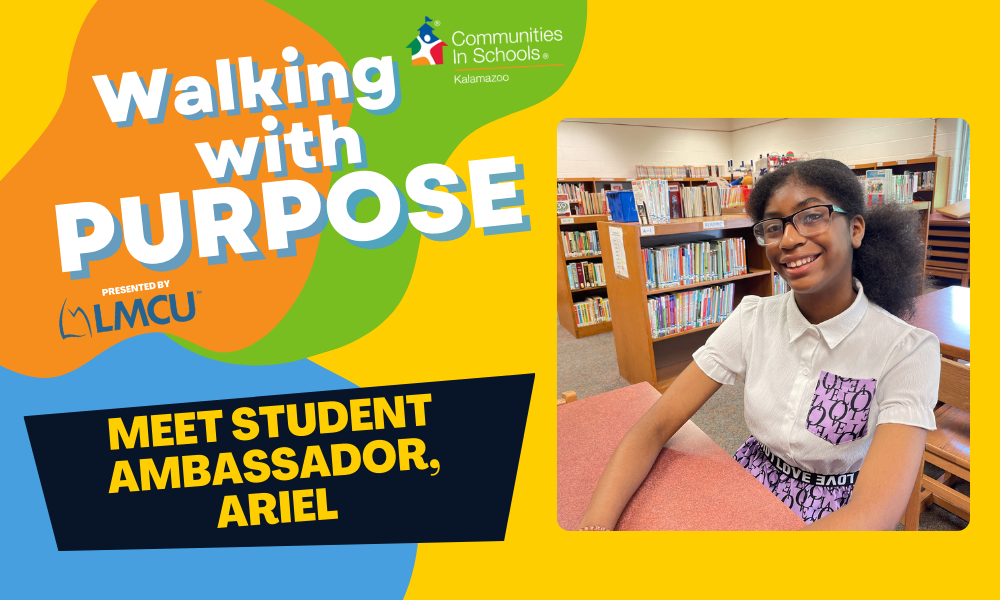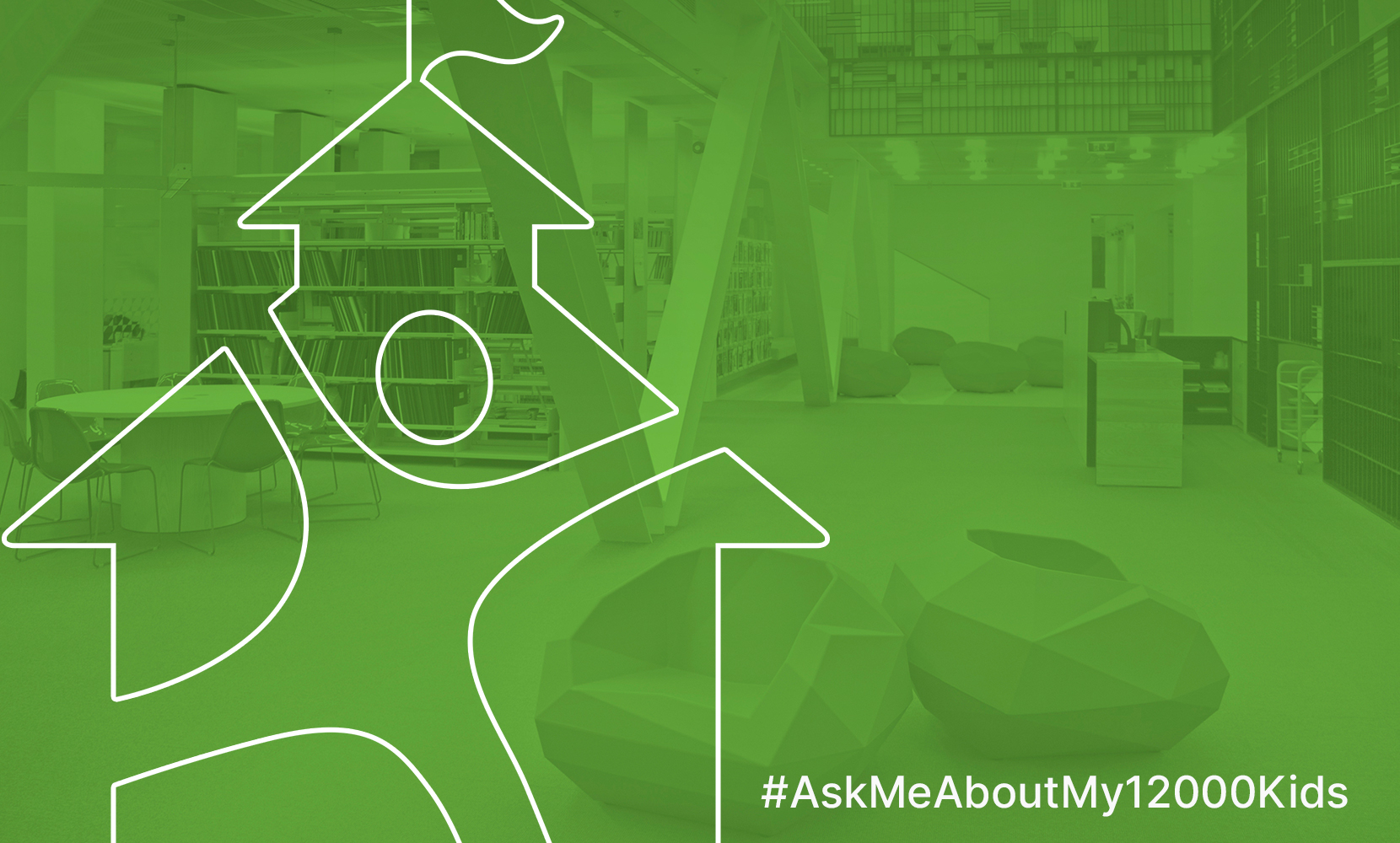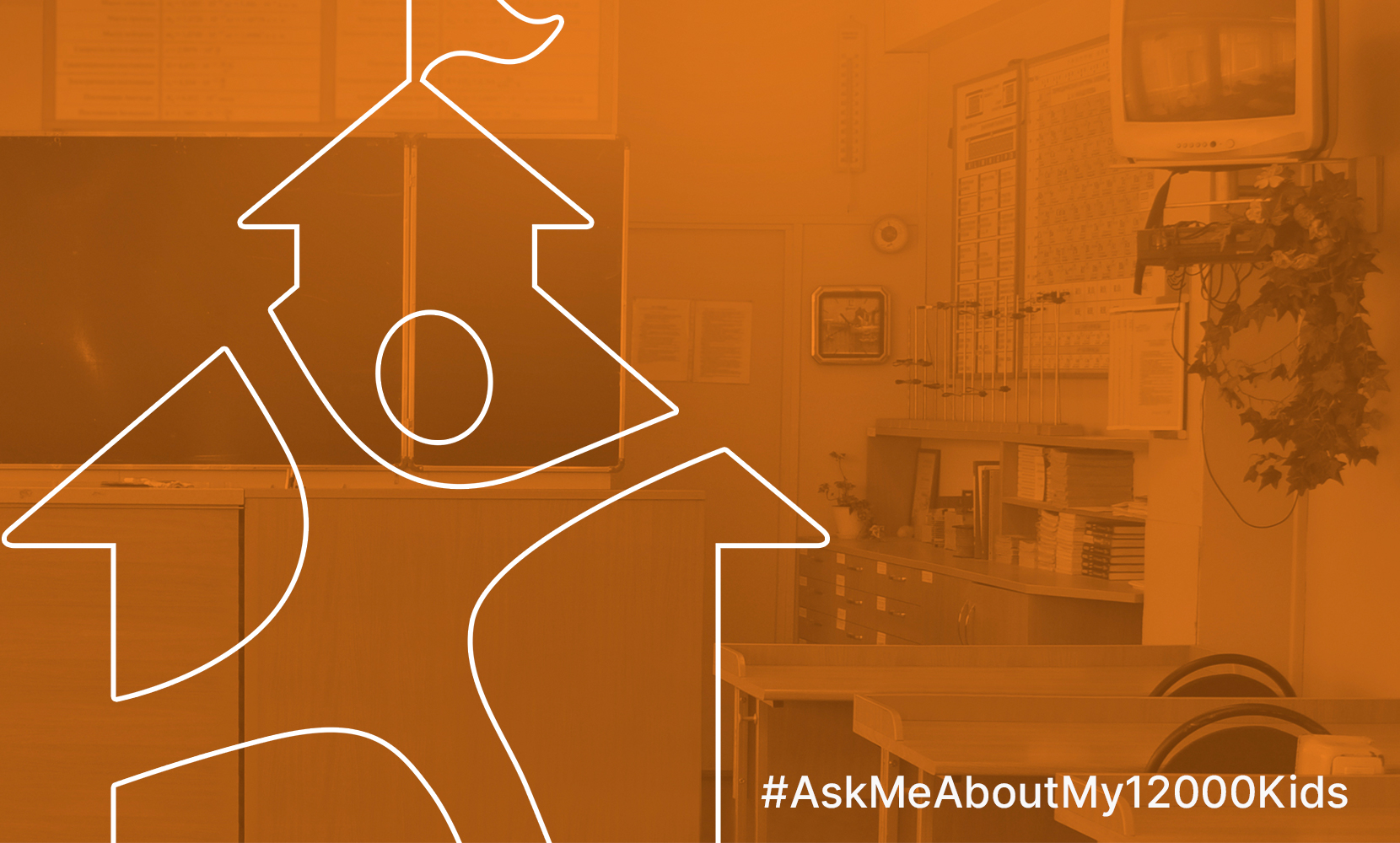Robin Greymountain: A Passion for Making Things Work In Schools (and on ships!)
 Welcome back to the POP QUIZ! This is a regular, yet totally unexpected, feature where we ask students, parents, staff, our friends, and partners to answer a few questions about what they are learning, reading, and thinking about. Today we feature Robin Greymountain, now in her fourth year as principal of Parkwood Upjohn Elementary School.
Welcome back to the POP QUIZ! This is a regular, yet totally unexpected, feature where we ask students, parents, staff, our friends, and partners to answer a few questions about what they are learning, reading, and thinking about. Today we feature Robin Greymountain, now in her fourth year as principal of Parkwood Upjohn Elementary School.
Originally from Fulton, Michigan, Robin and her family moved to Sugar Island when she was in the second grade. She notes that this Michigan island, located in the St. Marie’s river that flows between Michigan and Ontario, used to be considered part of Ontario. “It is part of the Chippewa reservation land and part private land. We lived on land that has been in my family for hundreds of years. My father’s mom was born and raised on Sugar Island. My family historically would come to the land known as Manmade Lake for summer berry picking. The land is still in my family’s name.”
Principal Greymountain holds a bachelor’s in education from Southern Utah University and a master’s degree in educational leadership from Northern Arizona University. Prior to working in the Kalamazoo Public Schools, she served eight years as an elementary principal in Page, Arizona, and previously worked as a teacher and the district’s coordinator for English Language Learners and Gifted and Talented programs. Before pursuing a career in education, she was a diesel mechanic.
Alright, Principal Greymountain: pencil out, eyes on your own paper. Good luck.
POP QUIZ
I didn’t know you had been a mechanic!
I joined the Coast Guard between my junior and senior year of high school. That’s all I ever wanted to do. My parents signed the waiver the day I turned 17. I got on a plane and went to boot camp. I was in the reserves one year and then went active duty when I graduated from high school.
What made you want to be a mechanic?
All of my uncles and my grandfather were mechanics. My Uncle Butch was truly an artist, I’d watch him weld, make race cars, take apart his van and put it back together. Oh, what he could do with engines! I wanted to do that. And, at some point, sexism came into play. Somebody told me, “You can’t do that because you’re a woman.” Oh, yea? I thought. Watch me! I became a mechanic and I was the only woman in the engine room, supervising 17 men.
As part of the mechanic’s training, I worked inside a ship and had to learn the engine compartment. It was three stories high and twice a wide. The piping was a huge puzzle. I had to figure it out. It was exciting, learning how things worked, drawing all those pipes. I liked this! I held the record for finishing it the fastest. I proved to them that woman are just as good as men.
Or, in this case, better.
I was better.
So how did you move from mechanic to the world of education?
When I got out of the Coast Guard and went to college I didn’t know what I wanted to do. I knew I wanted to stay home or close to the reservation and I knew the reservation was always looking for teachers. I started taking education classes. I enjoyed it and loved it. It lit a fire inside me. It’s the kind of job where you have a purpose; it’s fulfilling. I’m a part of shaping something better for the future.
What is something interesting you’ve recently learned?
I learned about the Social Justice Book Bowl competition that they have at Western Michigan University with Kalamazoo Public Schools. It’s part of the annual MLK Celebration.
We just blogged about that a few weeks ago! [Post may be read here.]
Until this year, I didn’t understand the greatness of this event. I was missing this for the last four years? The speakers were moving—Mr. Sidney Ellis was so good. I enjoyed the poem the student read aloud, the book bowl competition, the celebration, just everything about the whole event was wonderful. I only happened to go this year because my daughter participated in the Social Justice Art Competition. (Anja Greymountain, a seventh grader at Maple Street Magnet School was one of the top three finalists. Her work, “Multi-War Bonnet,” took top prize.)
I’m so glad I went to the celebration. The books the students read in advance of the Book Bowl give them courage to have context to have meaningful discussions, to share provocative thoughts, and have the ability to have the hard conversations.
… As a school and as educators, we have to teach about diversity and instill an appreciation and a respect for all the cultures and demographics our students come from.
What are you currently reading?
Decisive, a book by Chip and Dale Heath. I have a couple of their other books. Made to Stick and Switch. They write about how people and systems work and what you can do to make systems more effective. Made to Stick is about emotions, how people run off of emotions and how the emotional part of the brain leads people to do certain things. When you work with people, you want to create buy in, not have teachers do something because “I told you to do it” but rather they do something because you can show them this will work and how doing this is the best thing for children. Their book I’m reading now, Decisive, goes into how you make those changes in education to make the system better overall for kids.
Favorite word?
Fricative. That is the sound of letters when they blend together or come out of your mouth. There are 44 sounds in the English language. Some kids, when you ask them to sound something out, if they haven’t heard that specific sound from birth to four—that pure sound—they can’t differentiate and sound out that short /e/, or short /i/ sound; but they can feel it in their mouth.
What do you love about Kalamazoo?
The diversity of Kalamazoo. I love being able to experience different cultures. There is so much opportunity here. You can meet people in a variety of settings and be surrounded with different social groups and it doesn’t matter what your background may be. I can interact and learn their stories…Of all the places I have been, Kalamazoo, more than any other place, appreciates diversity.
And there is always something going on in Kalamazoo. That’s another thing I love. You can’t say you’re bored or don’t know what to do. You just have to choose from the many things, the diverse celebrations happening throughout the year.
As a principal, what was the transition like for you, coming from Arizona to Kalamazoo? Did you experience a cultural shift of any kind?
The transition part, culturally, wasn’t difficult for me. The students of my school were 75% Native American from the Navajo Nation…Coming to Kalamazoo, it was more about learning the culture of the system. What are the policies? What are the procedures I need to learn? Also, I came from a smaller school district, and went from a district with two elementary schools to 17. So, while the overall the size of the district was an adjustment, the school size of the elementary building I had been principal is comparable. I had a school of 600 kids and I have 588 students here.
What does it mean to you, as principal of Parkwood Upjohn to have CIS in your building? Do you see CIS as value-added to the school environment and the work you do here?
Yes! CIS is a crucial element to our school and needs to be in all schools for children. For instance, when a student’s basic needs aren’t met, learning can be compromised. CIS works to get those basic needs met. Student needs can range from emotional, to behavioral, attendance, health, and whatever it is, CIS works to connect the right resources to the child. If CIS doesn’t have a specific person or resource, they provide direction for how to find something for that child.
Behind every successful student is a caring adult. Who has been your caring adult?
Different people have been that caring adult at different points in my life. Whether they’ve come from the community, the church, the neighborhood, they’ve had an influence on me.
My mother, she was and still is my caring adult. I still hear her voice…telling me to do something or not do something. She had cancer, she was in Hospice and I was flying back and forth from Arizona to Michigan. Each visit I told her, I don’t know if I can make it to see you again. She said, Go live your life. I’m at peace with my life; you need to live your life…
Thank you, Principal Greymountain, for hanging out with us at Ask Me About My 12,000+ Kids.
Tags: Chip Heath and Dale Heath, CIS, coast guard, Communities In Schools of Kalamazoo, Kalamazoo Public Schools, model of integrated student services, Northern Arizona University, Parkwood Upjohn Elementary School, Robin Greymountain, Sidney Ellis, Social Justice Book Bowl, Southern Utah University, Sugar Island, Western Michigan University




